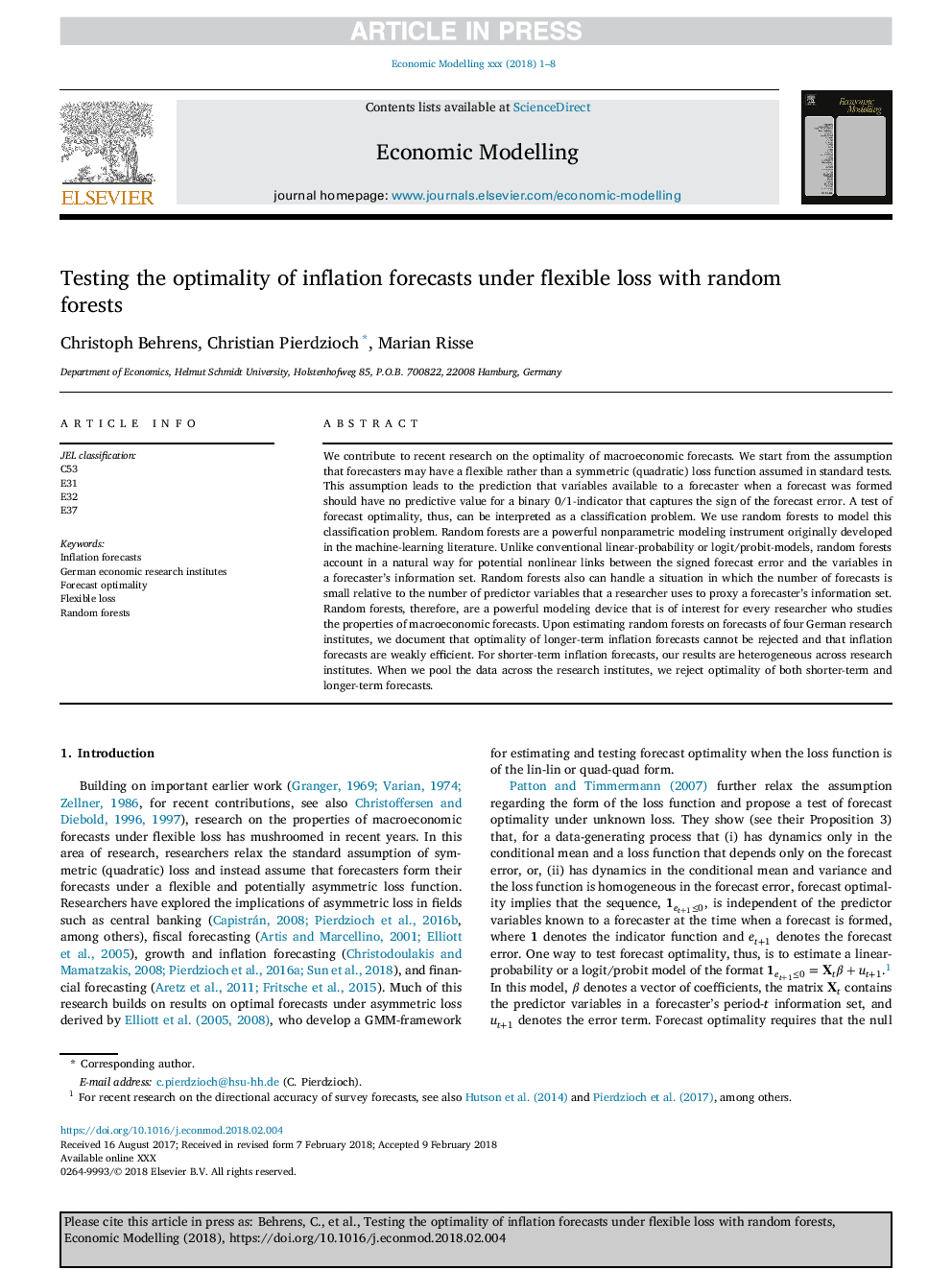| Article ID | Journal | Published Year | Pages | File Type |
|---|---|---|---|---|
| 7347025 | Economic Modelling | 2018 | 8 Pages |
Abstract
We contribute to recent research on the optimality of macroeconomic forecasts. We start from the assumption that forecasters may have a flexible rather than a symmetric (quadratic) loss function assumed in standard tests. This assumption leads to the prediction that variables available to a forecaster when a forecast was formed should have no predictive value for a binary 0/1-indicator that captures the sign of the forecast error. A test of forecast optimality, thus, can be interpreted as a classification problem. We use random forests to model this classification problem. Random forests are a powerful nonparametric modeling instrument originally developed in the machine-learning literature. Unlike conventional linear-probability or logit/probit-models, random forests account in a natural way for potential nonlinear links between the signed forecast error and the variables in a forecaster's information set. Random forests also can handle a situation in which the number of forecasts is small relative to the number of predictor variables that a researcher uses to proxy a forecaster's information set. Random forests, therefore, are a powerful modeling device that is of interest for every researcher who studies the properties of macroeconomic forecasts. Upon estimating random forests on forecasts of four German research institutes, we document that optimality of longer-term inflation forecasts cannot be rejected and that inflation forecasts are weakly efficient. For shorter-term inflation forecasts, our results are heterogeneous across research institutes. When we pool the data across the research institutes, we reject optimality of both shorter-term and longer-term forecasts.
Related Topics
Social Sciences and Humanities
Economics, Econometrics and Finance
Economics and Econometrics
Authors
Christoph Behrens, Christian Pierdzioch, Marian Risse,
